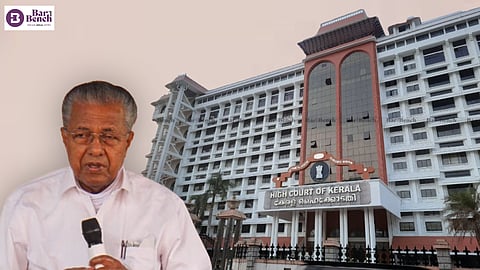
- Latest Legal News
- News
- Dealstreet
- Viewpoint
- Columns
- Interviews
- Law School
- Legal Jobs
- हिंदी
- ಕನ್ನಡ

The Kerala High Court on Friday expunged critical remarks made by a Magistrate court against Chief Minister Pinarayi Vijayan in connection with a corruption case filed against Additional Director General of Police (ADGP) MR Ajith Kumar. [MR Ajith Kumar v State of Kerala and connected case].